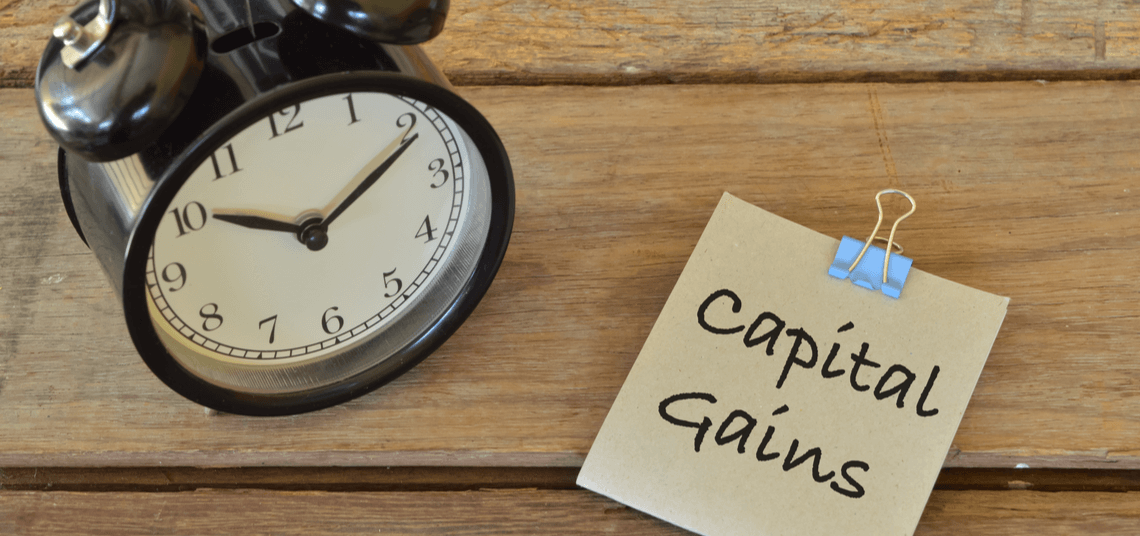Is it time to pay?
Being a landlord has many perks. From the ability to invest in a property with the potential to grow in value to reaping the rewards of short-term rental income, it’s easy to see where the term “safe as houses” came from. But like any scenario where you can make a profit, a visit from the taxman isn’t too far behind.
Enter Capital Gains Tax (CGT), which many landlords and second-home owners need to pay upon the sale of their asset. How much you’ll need to pay depends on several factors, which is why we’ve put this guide together detailing everything you need to know about CGT.
What is capital gains tax?
Capital Gains Tax is due on the profit of any asset you sell that has increased in value since the initial purchase. You are taxed on the gains you make rather than the entire price. For example, if you bought a buy-to-let property for £250,000 and sold it for £350,000, you would be liable to pay CGT on the £100,000. Some assets are tax-free, just not an investment property.
Do I need to pay CGT when I sell my buy-to-let?
Almost certainly. Unless you don’t make a profit, or your gains are in a year where they fall under the tax-free allowance, you’ll be required to pay CGT on your buy-to-let investment. On the other hand, homeowners aren’t required to pay CGT if it’s their primary home, though, buy-to-let properties and second homes fall under the Capital Gains Tax remit and therefore will likely be subject to CGT.
What are the CGT rates on property?
Ok, so we’ve established that you’re likely to pay CGT on your buy-to-let property if you decide to sell and it increases in value. But just how much are you looking at paying?
In the UK, property has a higher Capital Gains Tax than any other asset. How much you pay, however, depends on which tax bracket you fall into.
- Basic-rate taxpayers –anyone earning under £50,271 per year is required to 18 per cent on the gains they make when selling their buy-to-let property.
- Higher rate and additional rate – if you earn between £50,271 and £150,000, you’ll be classed as a higher-rate tax payer. Moreover, those earning more than £150k are additional rate taxpayers. Both of these tax bands mean you’ll pay 28% on the sale of your investment property on the gains you make.
All taxpayers also have an annual Capital Gains Tax allowance, so you can earn a specific amount tax-free. Currently, that figure is £12,300, though couples who jointly own assets can combine their tax-free allowance so it’s £24.600.
So how much CGT will I need to pay?
Let’s revisit that investment property bought for £250,000 and sold for £350,000. Below is how you can expect to pay as a basic-rate taxpayer and a higher-rate or additional tax payer.
| Basic-rate taxpayer | Higher rate and additional taxpayer |
| Property purchase value: £250,000 | Property purchase value: £250,000 |
| Property sales value: £350,000 | Property sales value: £350,000 |
| Capital Gains Tax due on £100,000 profit (18%) | CGT due on £100,000 profit (28%) |
| Amount due: £18,000 | Amount due: £28,000 |
It’s important to remember that the tax you’re charged is based on the gains you make and not the total amount of the property’s sale price. It’s also worth noting that you can deduct expenses from the sale, bringing down the overall amount due. So while the above table offers a very basic breakdown, the actual amount owed is likely to differ between sellers, even if the sale value is the same.
Are there any exemptions?
This is where things get slightly complicated but can also shave some money off your Capital Gains Tax bill. When selling your property, you can deduct costs involved, such as broker fees, stamp duty and improvements made to the property while you owned it.
Here’s what you can deduct:
- Estate agent fees when buying and selling
- Solicitors fees when buying and selling
- Stamp duty
- Broker fees
- Home improvements (eg, bathroom renovation
On top of that, you can also offset losses when selling your other assets. These can then be carried forward indefinitely. For example, if you own more than one property and make a loss of £25,000, you can claim them when it comes to doing a tax return. Losses can be claimed up to four years after they were incurred.
Capital Gains Tax is anything but straightforward, and there are many moving targets involved – especially if you have other assets. Therefore, it’s always best to consult an accountant who will be able to tell you the exact amount of CGT due.
Capital Gains Tax for ltd company landlords
Capital Gains Tax only applies to the sale of residential properties owned by individuals. Therefore, if you set up a limited company to purchase your buy-to-let, you will be exempt from Capital Gains Tax and instead will need to pay corporation tax.
The current corporation tax is currently set at 19 per cent, which is much more appealing than the 28 per cent due from higher-tax rate payers. Even so, it’s still worth discussing with an accountant before deciding to buy a property as an individual or through a limited company.
When do I need to pay capital gains tax?
You are required to pay the Capital Gains Tax on a property within 30 days of the completion of the sale. This is done by submitting a “residential property return” with the HMRC. Previously, you could complete payment within the tax year the property was sold in. However, that has now changed, and you have around a month to ensure the CGT is fully paid.
All of the gains
If you own a buy-to-let property that you want to sell, there’s every chance that you’ll need to pay CGT. Just remember that you should consult a financial advisor when it comes to the specific amount you’ll owe if selling a buy-to-let property. With our guide, however, you’ll have a better idea of what it entails and can feel more confident around the topic of Capital Gains Tax


